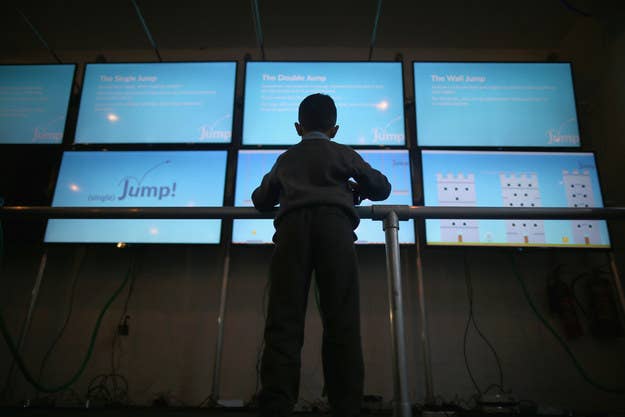
As public schools scramble to answer calls for educational innovation with tablet programs and online learning systems, lawmakers on both sides of the aisle are growing increasingly concerned about the privacy risks such tools pose to students.
On Wednesday, Rep. Jared Polis, a Democrat from Colorado, and Rep. Luke Messer, a Republican from Indiana, introduced the Student Digital Privacy and Parental Rights Act, legislation that would update the privacy protections afforded to students as the schools they attend embrace digital education. Specifically, the bill prohibits education companies from selling student data to third parties or using it for noneducational purposes. Also forbidden: targeted advertising.
"Digital student records, learning apps, electronic testing, and classroom tablets all mean that an enormous amount of information is being collected on students, from the day they enter kindergarten to the moment they graduate or enter the workforce," Rep. Polis said. "Students and parents have every right to expect that the millions of data points collected on them every day are safeguarded in a responsible way."
The student data privacy bill is intended to do just that. Not only does it ensure that ed-tech companies disclose the types of K–12 student data they collect and how it is used, it also requires them to enforce strong data protections and to notify the Federal Trade Commission and any affected parties in the event of a security breach.
"Every day, students turn over hoards of data without adequate privacy safeguards," Khaliah Barnes, director of the Student Privacy Project at the Electronic Privacy Information Center, told BuzzFeed News. "And many companies are churning profits from students' information and otherwise taking and using student information out of context."
Though critical of the weaker privacy protections in earlier drafts of the bill, Barnes now supports it. She said the bill as it is currently written empowers parents and educators, and offers strong protections against data mining.
"Both sides of the aisle can agree that student information is not for sale," Barnes said. "Students should have the freedom to learn in the classroom without the fear that every click, everything that they write is used in a way that they did not intend."
While many states have student data privacy laws, the Student Digital Privacy and Parental Rights Act would create a federal baseline to support the patchwork of state law. Supporters hope the bill will serve as a precursor to future legislation that will extend privacy protections to all students, not just K–12.
